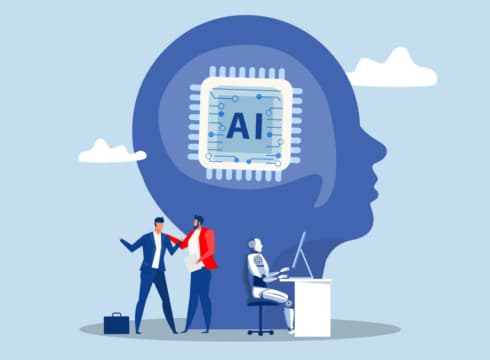The AI anchors will read farmer-centric news on the channel and will be able to speak in 50 Indian and global languages
AI Krish and AI Bhoomi, the two anchors, will disseminate necessary information about agricultural research, weather changes and government schemes
With AI adoption in full swing, Inc42 estimates the Indian GenAI market to soar to a size of $17 Bn by 2030
Inc42 Daily Brief
Stay Ahead With Daily News & Analysis on India’s Tech & Startup Economy
As artificial intelligence (AI) mania grips the world, Doordarshan, too, has jumped on the bandwagon. The public broadcaster’s agriculture channel, DD Kisan, will debut two new AI anchors — AI Krish and AI Bhoomi — on May 26.
In a statement, the Ministry of Agriculture said that the AI anchors will read farmer-centric news on the channel and will be able to speak in 50 Indian and global languages. It also claims that DD Kisan will be the first state-backed TV channel to introduce AI anchors.
“Doordarshan Kisan is going to launch two AI anchors (AI Krish and AI Bhoomi). These news anchors are a computer, which are exactly like a human, or rather, these can work like a human. They can read the news 24 hours and 365 days without stopping or getting tired,” said an official statement.
Available for viewing from Kashmir to Tamil Nadu and from Gujarat to Arunachal, the two AI anchors will disseminate necessary information about agricultural research happening both in the country and at the global level.
They also provide information about trends in agriculture “mandis”, changes in the weather conditions and information related to government schemes.
The latest launch comes at a time when an increasing number of Indian news channels are veering towards deploying AI in their newsrooms.
While Odisha TV has Lisa, Aaj Tak calls its AI news anchor Sana. Similarly, News18 Punjab Haryana’s AI anchor is called AI Kaur, while Soundrya made its debut on Kannada news channel Power TV last year.
The biggest benefit seems to be that AI platforms do not suffer from fatigue, unlike their human counterparts, and can read continuously. In the long term, they may also cost less. But, the deployment of AI anchors also raises concerns flagged by critics such as job losses.
In addition, certain AI models still face glitches and may not offer optimal news viewing experiences for the watchers.
What is also interesting about the launch is that it indicates that the government has thrown its weight behind AI and its deployment in key government functions.
This is on top of the Centre’s flagship IndiaAI Mission, which aims to foster a vibrant and innovative GenAI ecosystem in the country in the next few years. The government recently doubled the outlay of the initiative to INR 20,000 Cr, which is to be allocated over the next five years.
Additionally, the government’s AI-powered translation platform BHASHINI aims to create the next generation of government websites that will enable users to access them in their language of choice.
On the policy front, the Ministry of Electronics and Information Technology’s (MeitY) Secretary recently said that the Centre plans to regulate the AI space in a way that does not deter innovation. At the heart of this is the homegrown GenAI market, which is projected to become a $17 Bn opportunity by 2030.
{{#name}}{{name}}{{/name}}{{^name}}-{{/name}}
{{#description}}{{description}}...{{/description}}{{^description}}-{{/description}}
Note: We at Inc42 take our ethics very seriously. More information about it can be found here.


